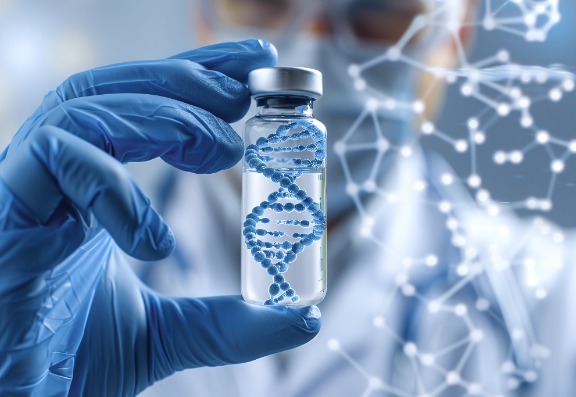Rosacea is more than just a flushed complexion — for many, it's a daily struggle with unpredictable flare-ups, sensitivity, and redness that undermines confidence and comfort. While countless products promise results, few deliver lasting improvements for this complex skin condition. But now, there’s growing buzz in the dermatology world around an ingredient that’s truly worth the hype: polynucleotides.
What Are Polynucleotides?
Polynucleotides are natural, biocompatible molecules derived from salmon DNA (yes, really). Think of them as biological building blocks — long chains of nucleotides that help repair damaged cells, reduce inflammation, and hydrate tissue at a cellular level. These tiny strands pack a serious punch when it comes to skin regeneration.
Originally used in medicine to promote wound healing and tissue repair, polynucleotides have quickly found their place in advanced aesthetic skincare — particularly for conditions like rosacea.

Why Rosacea Needs More Than Just a Gentle Cleanser
If you want to read more, the experts at Consulting Room really know what they're talking about and have put together Rosacea, specialist skin creme, Injectable tissue stimulators and sunscreen FAQs just for you.
If you have more questions, you can use the Rosacea, specialist skin creme, Injectable tissue stimulators and sunscreen questions feature to talk to our panel of trained medical experts.
If you're keen to get started with any of these treatments right away then you're in luck - those clever folks also have a list of trusted, accredited Rosacea, specialist skin creme, Injectable tissue stimulators and sunscreen clinics in your area.
Many thanks to the author of this blog Dr Sam Robson who owns Temple Clinic.
Dr Sam Robson is a highly respected and experienced practitioner who qualified as a GP in 1997 and has been practising aesthetic medicine since 2004.
She has also become progressively aware of the increasing incidence of low morale and self-esteem
The repertoire of treatments provided by the clinic aims to help address many problems.
Call Dr Sam Robson on 0122 486 9997 or visit www.templeclinic.co.uk.

2 skin experts discuss what you need to know about your skin in 2025...
This multi-step, non-invasive treatment has quickly become a client favourite for its instant glow, deep cleansing, and long-lasting skin health benefits.
Should aesthetic treatments be a one-off or something you should regularly consider? It’s important to find the right balance...
Hey, wait!
Before you go.....
Let's stay in touch, pop your details here and we'll send our editor's hand-picked updates on your fave subjects.